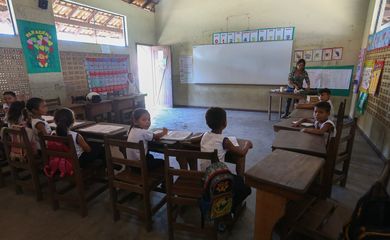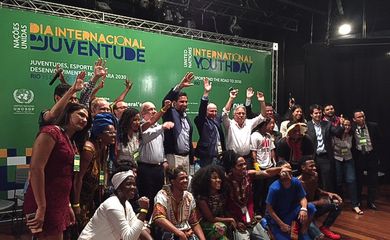Brazil must address local inequalities to meet SDGs


Brazil must prioritize redressing regional inequalities if the country wants to meet the Sustainable Development Goals (SDGs) set by the United Nations (UN) for 2030

Brazil must prioritize redressing regional inequalities if the country wants to meet the Sustainable Development Goals (SDGs) set by the United Nations (UN) for 2030—a preliminary study released Tuesday (Jul 25) in Rio de Janeiro by ABRINQ Foundation found.
The institution argues that 17 SDGs have targets directly linked to children and adolescents. In its survey, entitled “The Child and the Adolescent in the SDGs – Ground Zero for the Main Brazilian Indicators,” four SDGs were highlighted: eradicating poverty, zero hunger, health care and well-being, and gender equality.

ABRINQ Executive Administrator Heloisa Oliveira
ABRINQ Executive Administrator Heloisa Oliveira noted that, despite the progress made in the last decade, the figures brought to the limelight a number of concealed inequalities still targeting regions and social groups in the country. In order for the goals set for 2013 to be met, she argued, all social groups and regions in the country must be covered in the goals.
“Our statistics are good, but much the data must be broken down. We live in an extremely unequal country. By looking at the national average, we may think that some indicators are good, but we must look to the different realities in Brazil in order to really see where the challenges are,” she stated.
Regarding the eradication of poverty, the study—based on figures from the National Household Sample Survey (PNAD-2015)—found that 27% of Brazilians live on up to half the minimum wage every month. This percentage moves up to 40.2% for those aged up to 14 years old, and goes beyond 60% for children and adolescents in states such as Alagoas, Maranhão, Ceará, Bahia, and Pernambuco.
“We can't talk about an agenda for 2030 without prioritizing this group, who will make up the adult economically active population living in this world in 2030. We can't talk about the future without talking about children and adolescents,” Oliveira said.
SDGs
On September 25, 2015, 193 UN countries adopted the resolution “Transforming our World: the 2030 Agenda for Sustainable Development,” with 17 goals and 169 targets that must be fulfilled by all nations by 2030.
ABRINQ is one of the eight organizations selected to debate and implement the 2030 agenda of the National Commission for the Sustainable Development Goals.
Translated by Fabrício Ferreira
Fonte: Brazil must address local inequalities to meet SDGs



